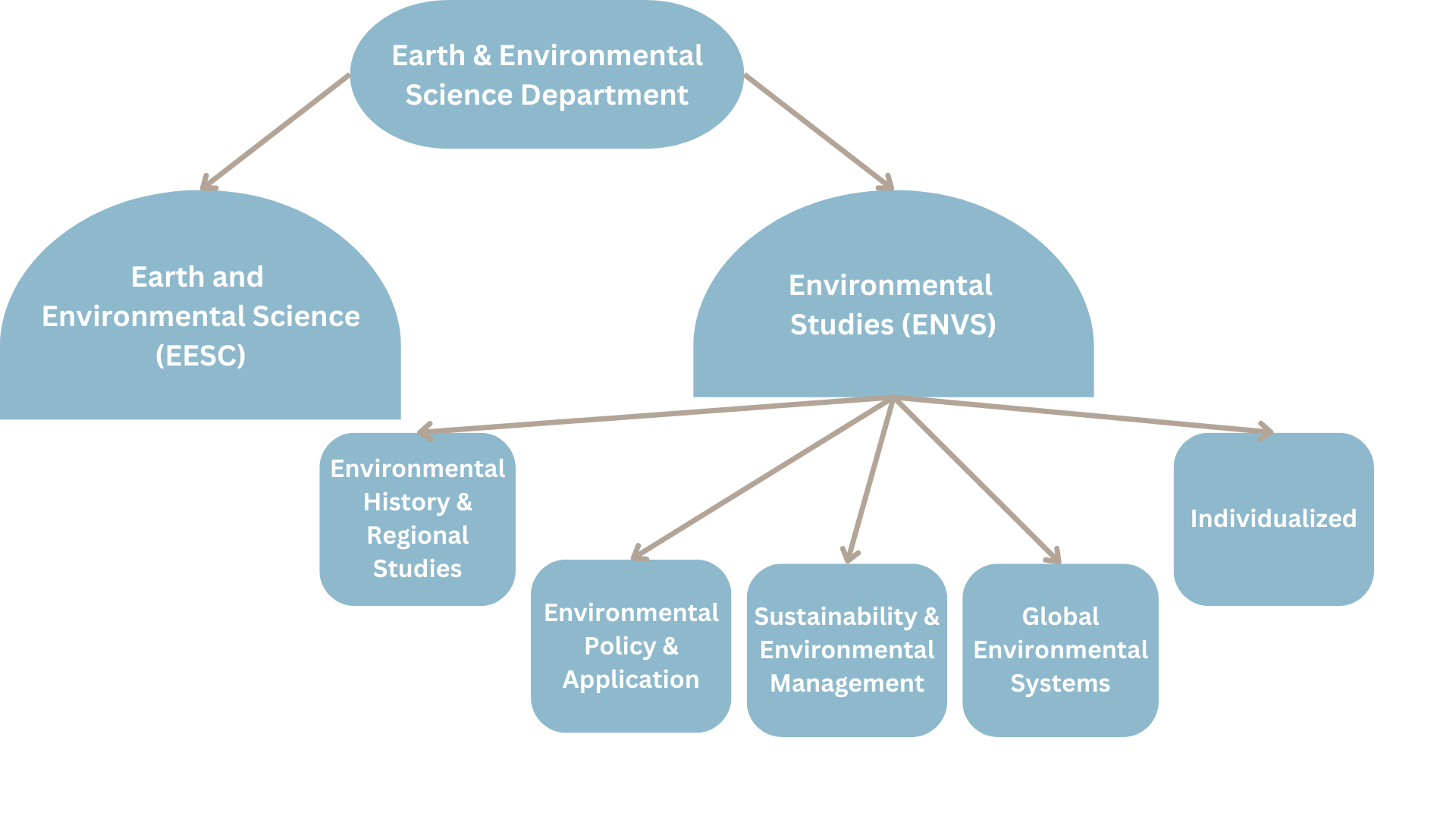
This is an individualized, specialized concentration designed for students who want to concentrate in an area not represented by the other concentrations. This concentration consists of a set of 7 courses that are chosen with the guidance of the EES Undergraduate Chair or Associate Director. Courses must focus in one major in the College and must show a relationship between the Environment and that major. Formal proposals for this concentration must be developed and submitted for review and approved by both the EES program director and undergraduate chair before admittance into this concentration. See the EES Undergraduate Chair or Associate Director of EES Undergraduate Programs for more details.
(Minimum 15 credits for Major / 35 credits total)
Required Courses (8 CUs)
ENVS 100 / ENVS 1000: Introduction to Environmental Science (1 CU)
GEOL 204 / EESC 2300: Global Climate Change (1 CU), OR
GEOL 100 / EESC 1000: Earth System Science (1 CU), OR
GEOL 103 / EESC 1060: Natural Disturbances and Disasters (1 CU), OR
GEOL 130 / EESC 1030: Oceanography (1 CU)
ENVS 301 / ENVS 3100: Environmental Case Studies (1 CU), OR
ENVS 302 / ENVS 3103: PGS – Case Studies in Environmental Sustainability (1 CU), OR
ENVS 400 / ENVS 3991: Environmental Studies Seminar (1 CU)
ENVS 4997 a & ENVS 4997 b Senior Thesis (two courses, 1 CU each)
Data Analysis and Statistics (1 CU) from pre-approved ENVS course list.
Economics and Policy (1 CU) from pre-approved ENVS course list.
Geographical or Environmental Modeling (1 CU) from pre-approved ENVS course list.
Concentration courses (7 CUs)
Seven courses that are chosen with the guidance of the Academic Advisor, EES Undergraduate Chair and Associate Director. (1 CU each)
Please refer to the pre-approved ENVS course list.
Related Practical Experience (0 CU)
Each student is encouraged to attend a summer field course or to seek a summer internship, summer employment, and/or academic-year practical experience/research related to his/her individual curriculum. Opportunities suited to a student's interests can usually be found. Students should discuss their options with their ENVS advisor.
